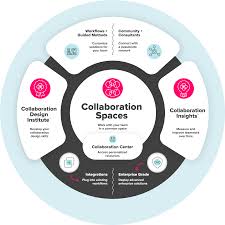The Importance of Female Equality
Female equality, also known as gender equality, is a fundamental principle that advocates for the equal rights, opportunities, and treatment of women in all aspects of society. It is a crucial concept that aims to eliminate discrimination and promote fairness for women in areas such as education, employment, healthcare, politics, and more.
Ensuring female equality is essential for creating a just and inclusive society. When women are treated equally, they have the opportunity to reach their full potential and contribute meaningfully to their communities. By breaking down barriers and challenging stereotypes, female equality paves the way for a more diverse and prosperous world.
Despite progress in recent years, gender inequality still persists in many parts of the world. Women continue to face challenges such as wage gaps, limited access to education and healthcare, underrepresentation in leadership roles, and gender-based violence. Addressing these issues requires a collective effort to dismantle systemic barriers and promote policies that uphold the rights of women.
Empowering women through initiatives that promote female equality not only benefits individuals but also society as a whole. Research has shown that gender equality leads to increased economic growth, improved health outcomes, enhanced social cohesion, and greater innovation. When women are given equal opportunities to succeed, everyone stands to gain.
It is crucial for individuals, organizations, governments, and communities to work together to advance female equality. By advocating for equal rights, challenging discriminatory practices, supporting women’s empowerment programs, and promoting gender-sensitive policies, we can create a more equitable world where every woman has the opportunity to thrive.
In conclusion, female equality is not just a women’s issue—it is a human rights issue that affects us all. By championing the rights of women and striving for gender parity in all aspects of life, we can build a more just and inclusive society where every individual has the chance to fulfill their potential.
6 Key Benefits of Female Equality: Advancing Society, Economy, and Well-being
- Promotes social justice and fairness for all individuals
- Empowers women to reach their full potential and pursue their goals
- Leads to economic growth by tapping into the talents of all members of society
- Reduces gender-based violence and discrimination against women
- Creates a more diverse and inclusive workforce and leadership
- Improves overall health outcomes by ensuring equal access to healthcare for women
Challenges to Achieving Gender Equality: Addressing Barriers Faced by Women
- Resistance to change in traditional gender roles
- Gender stereotypes and biases that perpetuate inequality
- Unequal pay and limited economic opportunities for women
- Underrepresentation of women in leadership positions
- Lack of access to quality healthcare and reproductive rights for women
- Gender-based violence and discrimination against women
Promotes social justice and fairness for all individuals
Promoting female equality not only empowers women but also fosters social justice and fairness for all individuals. By advocating for equal rights and opportunities for women, we create a more inclusive society where everyone is treated with respect and dignity. Gender equality challenges harmful stereotypes and discriminatory practices, leading to a more just world where individuals are judged based on their abilities and character rather than their gender. When we prioritize female equality, we contribute to a more equitable and harmonious community where every person has the opportunity to thrive and succeed.
Empowers women to reach their full potential and pursue their goals
Female equality empowers women to reach their full potential and pursue their goals by providing them with equal opportunities, resources, and support to thrive in all aspects of life. When women are given the chance to pursue their ambitions without barriers or discrimination, they can excel in their chosen fields, contribute meaningfully to society, and make a lasting impact on the world around them. By fostering an environment of equality and empowerment, we enable women to unlock their talents, fulfill their aspirations, and create a brighter future for themselves and generations to come.
Leads to economic growth by tapping into the talents of all members of society
Promoting female equality leads to economic growth by tapping into the talents of all members of society. When women are given equal opportunities to participate in the workforce, access education and training, and pursue leadership roles, the economy benefits from a broader pool of skills, perspectives, and innovations. By harnessing the full potential of women in the workforce, businesses and industries can drive productivity, creativity, and competitiveness. Gender equality not only empowers women to contribute meaningfully to economic development but also enhances overall prosperity by leveraging the diverse talents and capabilities of all individuals in society.
Reduces gender-based violence and discrimination against women
Promoting female equality plays a crucial role in reducing gender-based violence and discrimination against women. When women are treated as equals in society, they are less likely to be subjected to harmful practices and violence simply because of their gender. By advocating for gender equality, we can create a culture that respects and values women, ultimately leading to a decrease in instances of discrimination and violence against them. Empowering women through equality initiatives helps to build a more just and safe environment where every individual is treated with dignity and respect, regardless of their gender.
Creates a more diverse and inclusive workforce and leadership
Promoting female equality in the workforce and leadership roles leads to a more diverse and inclusive environment. By ensuring equal opportunities for women, organizations can benefit from a wider range of perspectives, ideas, and talents. A diverse workforce fosters innovation, creativity, and problem-solving skills, ultimately driving better business outcomes. Additionally, having women in leadership positions helps break down gender stereotypes and inspires future generations of women to pursue their professional aspirations with confidence. Embracing female equality in the workplace not only strengthens individual organizations but also contributes to building a more equitable and prosperous society as a whole.
Improves overall health outcomes by ensuring equal access to healthcare for women
Ensuring female equality improves overall health outcomes by guaranteeing women equal access to healthcare services. When women have equitable access to healthcare, they are more likely to receive timely and appropriate medical care, leading to better health outcomes and overall well-being. By addressing disparities in healthcare access and quality, female equality promotes preventive care, early detection of diseases, and effective treatment, ultimately contributing to healthier communities and a stronger society as a whole.
Resistance to change in traditional gender roles
Resistance to change in traditional gender roles is a significant con of female equality. Deep-rooted societal norms and expectations often dictate specific roles and behaviors based on gender, leading to resistance when individuals challenge these norms. This resistance can manifest in various forms, such as backlash against women who seek to break free from traditional roles, limited opportunities for women in male-dominated fields, and cultural stigmatization of those who do not conform to gender stereotypes. Overcoming this resistance requires ongoing efforts to educate, raise awareness, and promote inclusivity to create a more equitable society where individuals are free to express themselves regardless of traditional gender expectations.
Gender stereotypes and biases that perpetuate inequality
Gender stereotypes and biases are a significant con of female equality, as they perpetuate inequality by imposing rigid expectations and limitations based on gender. These stereotypes often reinforce harmful beliefs about women’s capabilities, roles, and worth, leading to discrimination in education, employment, and society at large. Biases rooted in gender norms can hinder women’s advancement in various fields and contribute to the underrepresentation of women in leadership positions. Overcoming these ingrained stereotypes is crucial for achieving true gender equality and creating a more inclusive and equitable world for all individuals, regardless of their gender.
Unequal pay and limited economic opportunities for women
Unequal pay and limited economic opportunities for women represent a significant con of female equality. Despite advancements in gender equality, women continue to face disparities in wages compared to their male counterparts for performing the same work. This wage gap not only undermines women’s financial security but also perpetuates systemic inequality. Additionally, limited access to economic opportunities, such as career advancement and entrepreneurship, further hinders women’s ability to achieve financial independence and contribute fully to the economy. Addressing these challenges is essential in creating a more equitable society where all individuals, regardless of gender, have equal access to economic resources and opportunities for success.
Underrepresentation of women in leadership positions
The underrepresentation of women in leadership positions is a significant con of female equality that persists in many sectors and organizations. This imbalance not only limits the diverse perspectives and talents that women bring to leadership roles but also perpetuates gender stereotypes and reinforces existing power dynamics. When women are excluded from decision-making positions, it hinders progress towards achieving true gender equality and sends a message that women are not valued or capable of leading effectively. Addressing this con requires proactive efforts to promote gender diversity, create inclusive environments, and provide opportunities for women to advance into leadership roles based on merit and ability rather than gender stereotypes.
Lack of access to quality healthcare and reproductive rights for women
The lack of access to quality healthcare and reproductive rights for women is a significant con of female equality that hinders women’s ability to make informed decisions about their bodies and health. In many parts of the world, women face barriers such as limited healthcare services, inadequate information on reproductive health, and restrictions on accessing essential care like contraception and safe abortion. This disparity not only jeopardizes women’s physical well-being but also undermines their autonomy and agency over their reproductive choices. Addressing this con is crucial in achieving true gender equality and ensuring that all women have the right to comprehensive healthcare services and the ability to make decisions about their bodies free from discrimination and coercion.
Gender-based violence and discrimination against women
Gender-based violence and discrimination against women represent a significant con of female equality, highlighting the pervasive challenges that women continue to face in society. From domestic abuse and sexual harassment to unequal treatment in the workplace and limited access to resources, these forms of violence and discrimination perpetuate inequality and hinder women’s ability to fully participate in all aspects of life. Addressing this con requires a concerted effort to challenge harmful stereotypes, enact and enforce laws that protect women’s rights, provide support services for survivors, and promote a culture of respect and gender equality. Only by tackling gender-based violence and discrimination head-on can we truly advance towards a more equitable society for all individuals.




Leave a Reply